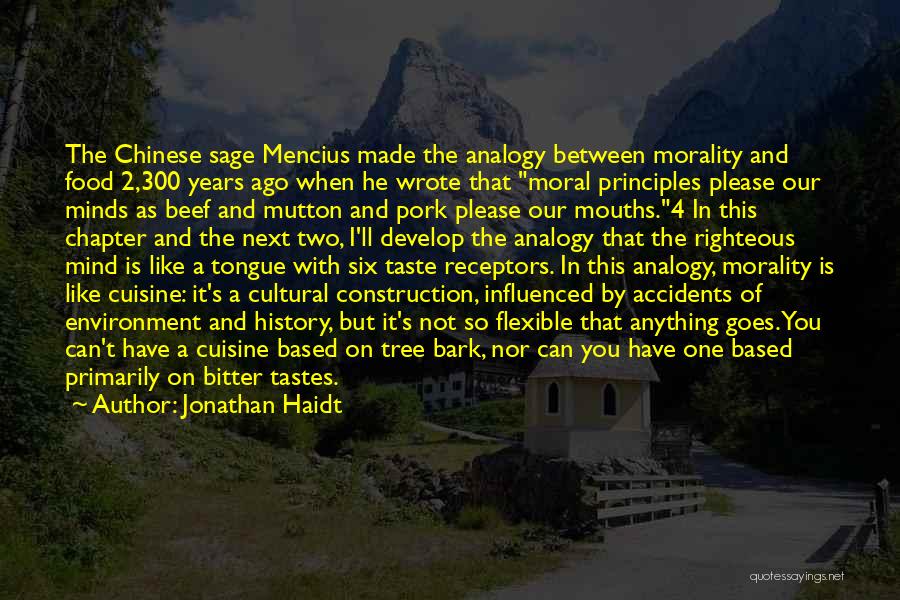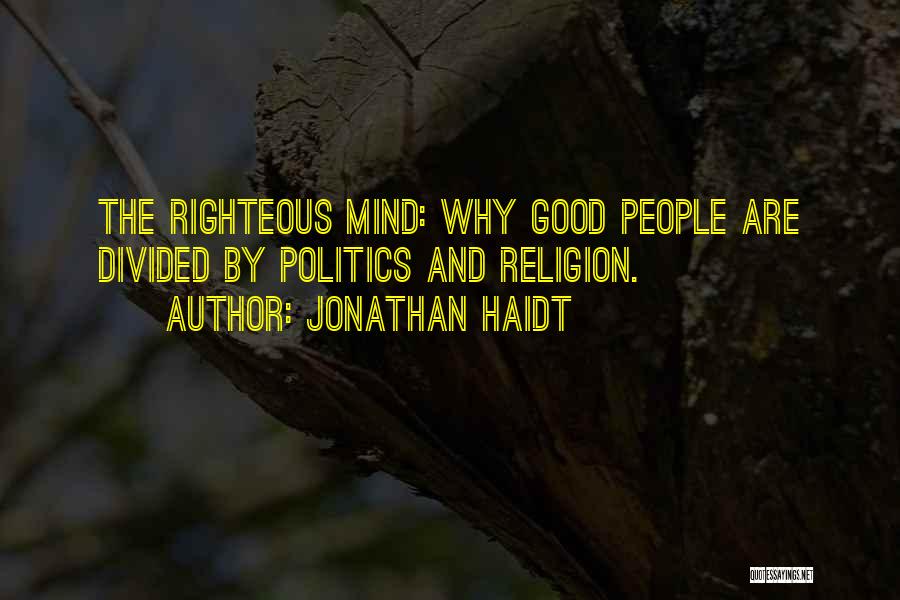Jonathan Haidt The Righteous Mind Quotes & Sayings
Enjoy reading and share 4 famous quotes about Jonathan Haidt The Righteous Mind with everyone.
Top Jonathan Haidt The Righteous Mind Quotes

The Chinese sage Mencius made the analogy between morality and food 2,300 years ago when he wrote that "moral principles please our minds as beef and mutton and pork please our mouths."4 In this chapter and the next two, I'll develop the analogy that the righteous mind is like a tongue with six taste receptors. In this analogy, morality is like cuisine: it's a cultural construction, influenced by accidents of environment and history, but it's not so flexible that anything goes. You can't have a cuisine based on tree bark, nor can you have one based primarily on bitter tastes. Cuisines vary, but they all must please tongues equipped with the same five taste receptors.5 Moral matrices vary, but they all must please righteous minds equipped with the same six social receptors. — Jonathan Haidt

Understanding the simple fact that morality differs around the world, and even within societies, is the first step toward understanding your righteous mind. — Jonathan Haidt

BORN TO BE RIGHTEOUS I could have titled this book The Moral Mind to convey the sense that the human mind is designed to "do" morality, just as it's designed to do language, sexuality, music, and many other things described in popular books reporting the latest scientific findings. But I chose the title The Righteous Mind to convey the sense that human nature is not just intrinsically moral, it's also intrinsically moralistic, critical, and judgmental. — Jonathan Haidt

The Righteous Mind: Why Good People are Divided by Politics and Religion. — Jonathan Haidt





